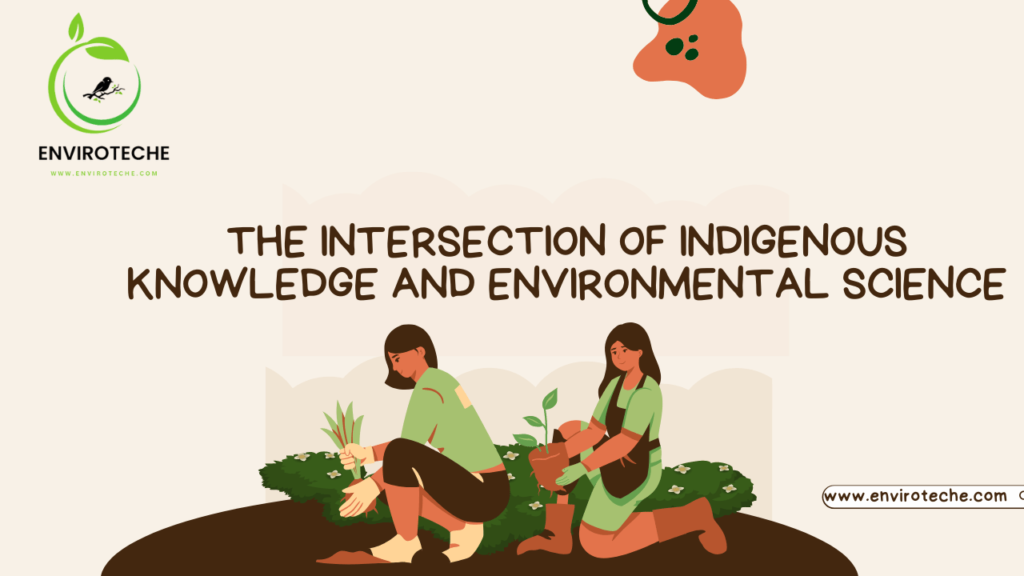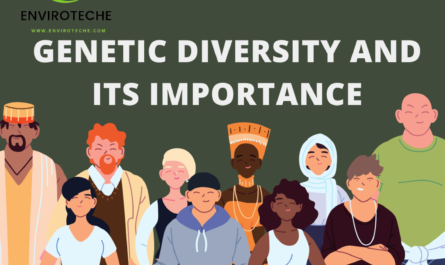
Muhammad Qasim1, Qudrat Ullah1
1Department of Environmental Sciences, Government College University Faisalabad
Introduction:
Numerous environmental issues, such as climate change and biodiversity loss, call for creative solutions. There is growing awareness of the significance of fusing environmental science with traditional knowledge systems in the goal of sustainable development, especially indigenous knowledge. Indigenous peoples have spent millennia living in and managing a variety of ecosystems, giving them unique insights into the linkages between the environment and human societies.
This blog examines the relationship between indigenous knowledge and environmental research, underlining the significance and possible advantages of this partnership.
Understanding Traditional Ecological Knowledge:
Indigenous knowledge is the collective understanding, customs, and viewpoints of Indigenous peoples on their environments. Indigenous knowledge of ecosystems and natural resources is known as “Traditional Ecological Knowledge” (TEK). TEK frequently emphasizes the whole person and is firmly based on the idea that people are an essential component of nature. The main characteristics of TEK, including its emphasis on sustainability, intergenerational transmission, and observation-based learning, are covered in this section.
Complementary Approaches:
On the other hand, environmental science is a field that is based on scientific principles and modern technology. It offers a framework for comprehending the problems and ecological processes of the present. A more thorough grasp of the environment can be attained by fusing the strict procedures of environmental research with the first-hand experience of Indigenous communities. The complementary features of these two knowledge systems are examined in this section along with how they might strengthen one another.
Conservation and Biodiversity Management:
Collaboration between indigenous knowledge and environmental science has a big impact on biodiversity management and conservation. Indigenous peoples have traditionally taken care of their lands by using sustainable methods that guarantee the ecosystems’ long-term health. This section emphasizes the significance of acknowledging and supporting Indigenous peoples’ rights and roles in biodiversity preservation by providing instances of successful Indigenous-led conservation programs.
Climate Change Adaptation and Mitigation:
A global crisis like climate change necessitates swift action. Indigenous communities have vital expertise in adjusting to environmental changes since they frequently live in areas that are disproportionately affected by climate change. They have learned how to adapt, and they have a thorough awareness of the regional climate and ecological indicators. This section examines how Indigenous knowledge, such as sustainable land management techniques and the preservation of traditional ecological practices, might aid in attempts to adapt to and mitigate climate change.
Ethical Considerations and Collaborative Partnerships:
Integrating Indigenous knowledge with environmental research requires a commitment to self-determination, respect for Indigenous rights, and fair collaborations. In this section, the ethical principles that must guide such collaborations are covered, with an emphasis on the value of informed consent, intellectual property rights, and equitable benefit distribution. It also emphasizes the need for institutional support and recognition by highlighting successful case studies of collaborative research.
Complementary Approaches:
On the other hand, environmental science is a field that is based on scientific principles and modern technology. It offers a framework for comprehending the problems and ecological processes of the present. A more thorough grasp of the environment can be attained by fusing the strict procedures of environmental research with the first-hand experience of Indigenous communities. The complementary features of these two knowledge systems are examined in this section along with how they might strengthen one another.
Conservation and Biodiversity Management:
Collaboration between indigenous knowledge and environmental science has a big impact on biodiversity management and conservation. Indigenous peoples have traditionally taken care of their lands by using sustainable methods that guarantee the ecosystems’ long-term health. This section emphasizes the significance of acknowledging and supporting Indigenous peoples’ rights and roles in biodiversity preservation by providing instances of successful Indigenous-led conservation programs.
Climate Change Adaptation and Mitigation:
A global crisis like climate change necessitates swift action. Indigenous communities have vital expertise in adjusting to environmental changes since they frequently live in areas that are particularly impacted by climate change. They have learned how to adapt, and they have a thorough awareness of the regional climate and ecological indicators. This section examines how Indigenous knowledge, such as sustainable land management techniques and the preservation of traditional ecological practices, might aid in attempts to adapt to and mitigate climate change.
Ethical Considerations and Collaborative Partnerships:
Integrating Indigenous knowledge with environmental research requires the utmost respect for Indigenous rights, self-determination, and equitable collaborations. The necessity of informed consent, intellectual property rights, and equitable benefit-sharing are highlighted in this section’s discussion of the ethical principles that must guide such collaborations. Additionally, it examines examples of collaborative research that have been effective and emphasizes the demand for institutional acknowledgment and support. Environmental Science
Conclusion:
A promising route toward a more environmentally friendly and equitable future lies at the nexus of environmental science and Indigenous wisdom. We may find creative answers to the urgent environmental concerns of our day by recognizing and respecting the knowledge held by Indigenous cultures. Collaborations that respect Indigenous knowledge systems can advance scientific knowledge, aid in successful conservation initiatives, and foster climate resilience. We must collaborate in order to close the gap between these two systems of knowledge, cultivate respect for one another, and establish a more peaceful coexistence between people and the natural environment. Environmental Science
Check Other Schlorships:
